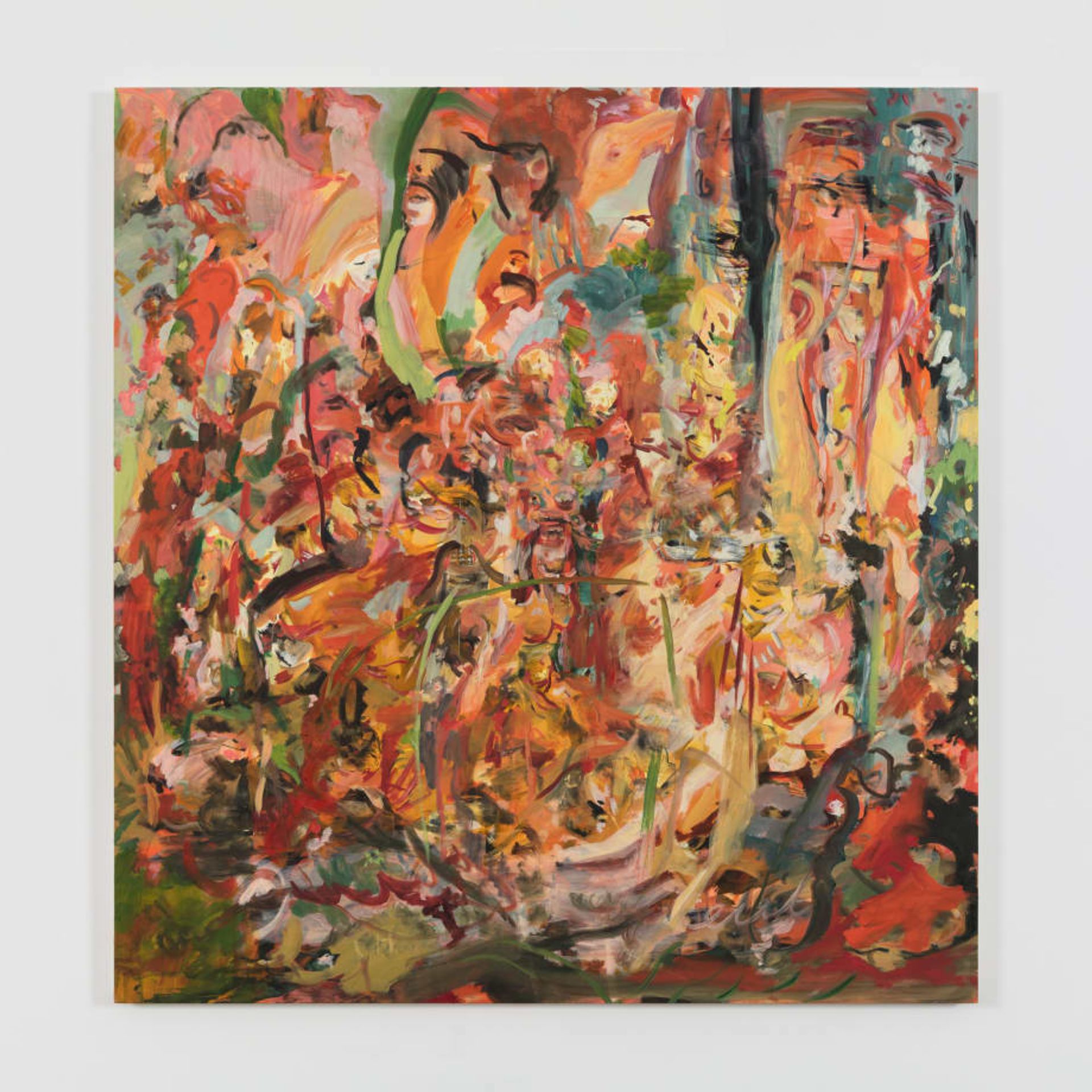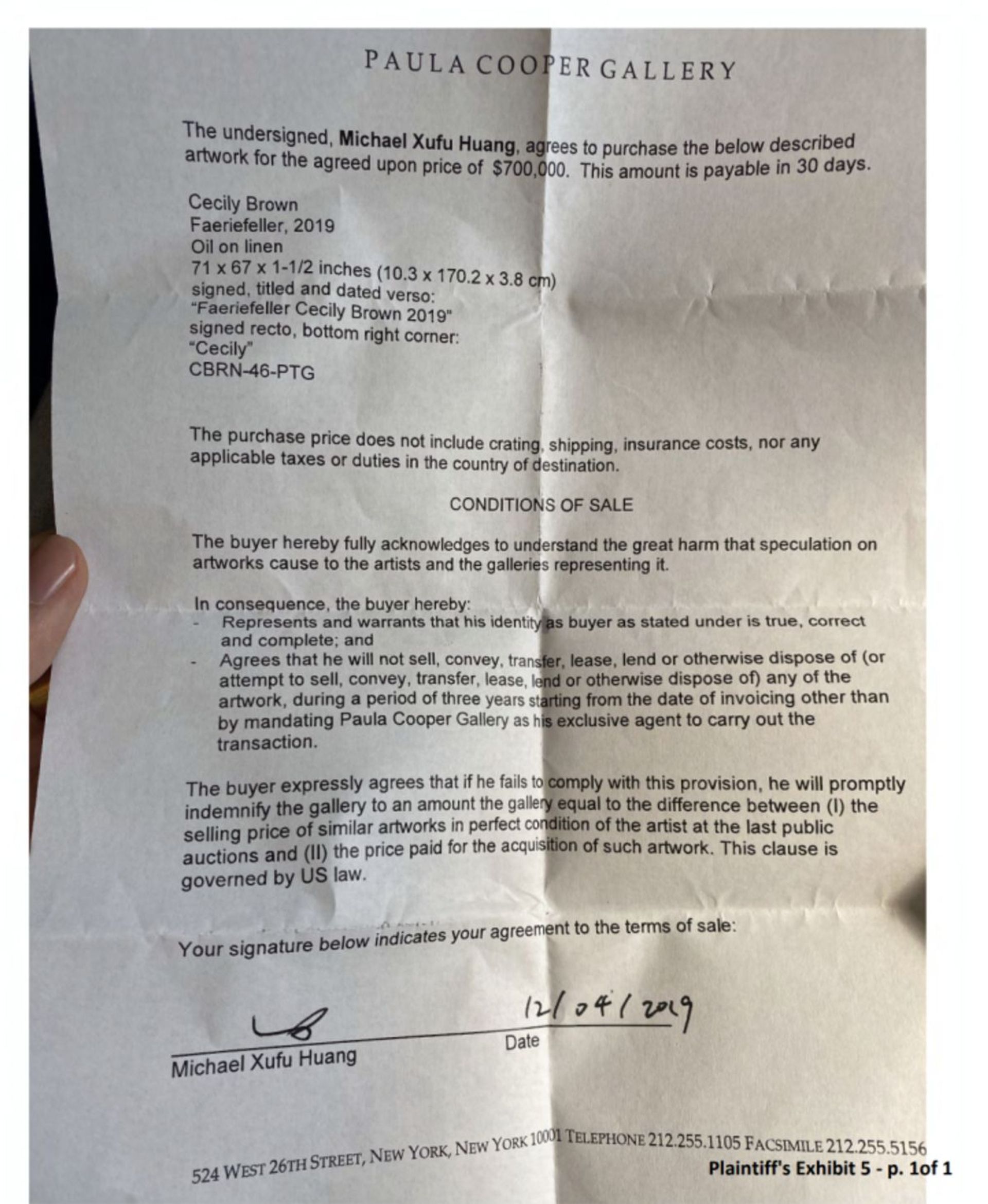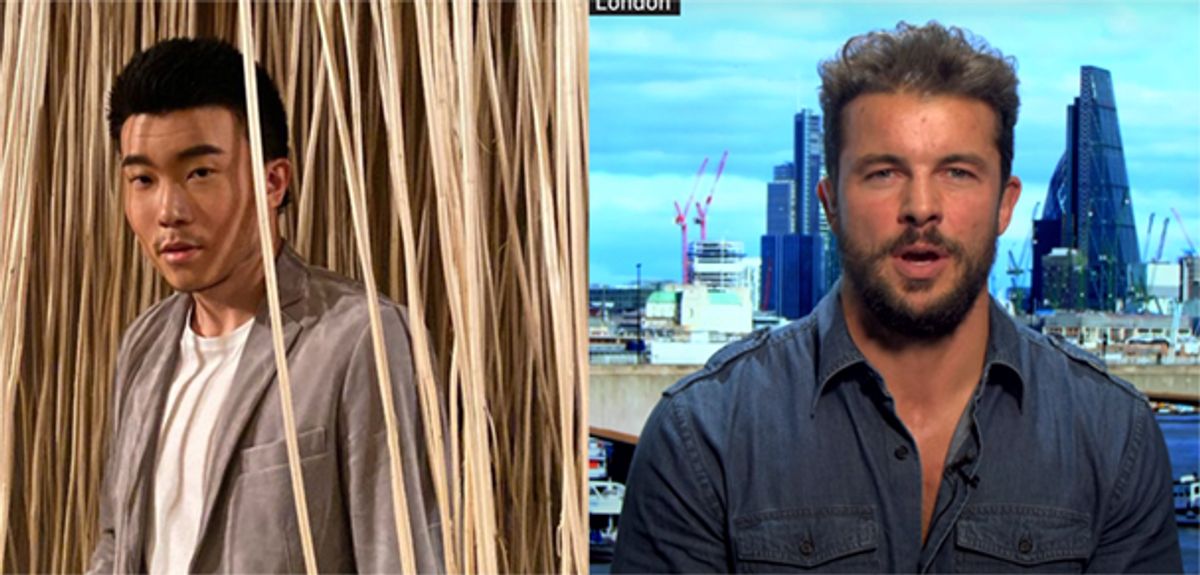A lawsuit between two young collectors involving the resale of a $700,000 Cecily Brown painting has seemingly concluded as quickly as it was made public, following a report by Bloomberg . But a number of documents submitted as evidence have provided rare insight into the dynamics at play in the upper end of the contemporary art market
The case, filed in Miami-Dade county court in March last year, was brought by the 26-year-old prominent Chinese patron and founder of X Museum, Beijing Michael Xufu Huang against the Monaco-based Argentinian Federico Castro Debernardi. The pair settled informally yesterday, just after the Bloomberg story broke, although this is yet to be formalised.
Huang was seeking $1.3m in "reputational damages" after he claimed Debernardi had violated terms of a private contract made between the two, in which Huang would use his status to purchase in-demand primary market works for Debernardi that the latter would otherwise not have access to. The agreement stipulated that Huang would buy the works in his own name under the guise of adding them to his collection, and then immediately sell them to Debernardi with a 10% mark-up on the original price.

Cecily Brown's Faeriefeller (2019). Courtesy of the artist and Art Basel
The central dispute pertained to a 2019 painting by Brown titled Faeriefeller, shown by Paula Cooper at Art Basel in Miami Beach in December 2019. According to court documents seen by The Art Newspaper, Huang attended the fair with the "sole purpose" of purchasing the painting from Paula Cooper's stand, buying the work for $700,000 and then reselling it to Debernardi for $770,000. Debernardi also reimbursed Huang for his travel expenses from China to Miami.
However, in violation of their agreement, Debernardi resold the work in 2020 to the blue-chip gallery Lévy Gorvy—a deal that Paula Cooper soon caught wind of. This left Huang liable to terms of the contract he signed with Paula Cooper upon purchasing the painting that forbid him from selling it within three years without offering it back to the gallery first.
Most intriguingly, the contract between Huang and Paula Cooper included a clause stipulating that if Huang did sell the work within that period (and not through the gallery), he would be liable to pay Paula Cooper the difference between the original purchase price and "selling price of similar artworks in perfect condition of the artist at the last public auctions".

A contract signed by Michael Xufu Huang following the purchase of Cecily Brown's Faeriefeller (2019) from Paula Cooper Gallery
With Brown's auction results regularly reaching seven figures—her record stands at $6.7m—the gallery calculated this figure at between $500,000 and $1m. In an exchange submitted by Huang as evidence, the gallery warned him that it was prepared to seek damages of this amount, writing to him: "Media attention can be expected, Your actions and the various statements you have made to us will become widely known.”
How likely it is that a court would have upheld Paula Cooper's claim is not known, and the gallery was notably not involved in the lawsuit. In a statement shared with The Art Newspaper, its director Steven Henry says: "We have no comment on the litigation between Mr. Huang and Mr. Debernardi. The information in the documents that the parties chose to make public in court filings speaks for itself. The gallery will continue to protect the interests of the artists with whom we work."
Huang has since since settled with Paula Cooper for an amount he says was "way over the ten percent I made” from the commission. “It was my fault for letting this happen, so I paid it and took responsibility,” he told Bloomberg.
He added that the intention of his deal with Debernardi was not to make profit and that he would have made much more money by flipping the works on the open market.
Further case documents show that in 2019 Huang also purchased paintings by Nicolas Party for $68,000 and Harald Ancart for $220,000 for Debernardi under the same scheme. A wishlist from Debernardi, submitted as evidence, also includes works by other market darlings such as Dana Schutz, Jonas Wood and George Condo.
Text messages between the plaintiff and defendant tell of a friendly relationship, and yesterday, just hours after Bloomberg's report had published, it was announced by Huang's attorney that the two parties had settled the case privately, although official documents are yet to be signed.
“We are pleased that the parties have reached an agreement in principle to resolve this case, which resulted from a misunderstanding between Mr. Huang and Mr. Castro Debernardi,” Huang’s attorney Wendy Lindstrom said in a statement. “They look forward to collaborating again in the future.”
The damage to the reputations of the two collectors now remains to be seen. Huang is one of China's most prominent art world socialites and the youngest person to sit on the board of the New Museum. Meanwhile Debernardi, who was featured in Apollo's 40 under 40 list in 2017, has established Fundación Arte in Buenos Aires to promote the Argentinian art scene.


